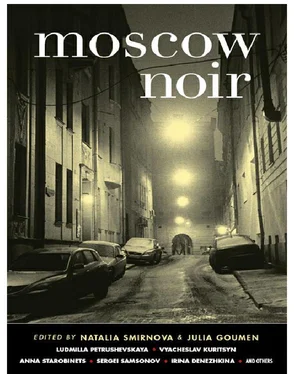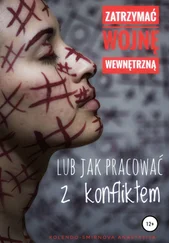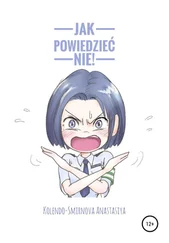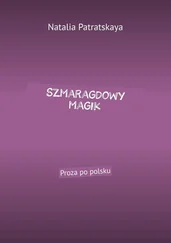At school, many knew of Danaë’s misfortune, which went on without end. The directress Gavriushkina, with all of her predatory, livid, gloating heart, sympathized with Danaë. Gavriushkina would say to her: “Danochka Innokentievna, you should get a good night’s sleep. I’ll think of someone to substitute for you, Danochka Innokentievna…”
Danaë couldn’t bear expressions of pity directed at herself. In her mind she quickly but carefully rolled up the velvety paths of pity—embroidered with gristle and spread out before her—and having rolled up each and every one of them, shoved the scrolls deep inside Gavriushkina’s cyclopean ass.
“Thanks for your concern, Maria Petrovna,” Danaë would reply to the woman, “but I think I can manage just fine…”
“It’s clearer to one looking at you from the outside,” Gavriushkina parried. “Your beautiful eyes have lost their shine.”
I’ll show you some shine, thought Danaë, and following right behind the scrolls of velvety paths, into the back end of the directress, she stuck a metaphysical myriad of wrinkled sheets, recently soiled by Daddy’s excretions.
Sometimes Daddy liked to frighten his daughter. When she was six years old, Innokentii Karaklev told her the story of a Chinese governor who had two pupils in each eyeball. It was because of these four eyes that he had received his political appointment; Dad said that the Chinese guy lacked any other talents. Six-year-old Danaë was unable to sleep without having nightmares for a whole month. The Chinese guy visited her in her dreams and made eyes at her relentlessly.
Innokentii Karaklev had been an archeologist. Unfortunately, he’d never dug up anything worthwhile, anything for which one might win an award. All the Troys had been excavated before him. In his youth, he had planned to search out the tomb of Abel Adamovich Yahwehev, but somehow it just never panned out.
What’s wrong with me? Danaë was indignant with herself. He must have dug something up, I’ve just forgotten.
“Listen, Daddy, what was it you dug up?” asked Danaë as she changed his sheets.
“Cancer.”
“Yeah, but what else?”
“You…”
“I think it was something related to the burial mounds of the Scythians.” “Yeah, well, the burial mounds…”
“You don’t want to talk about it?”
“Why would I want to talk about it? Soon I’ll be a Scythian myself…”
Once Danaë got a call from the bank and was offered a line of credit. What the bank needed with Danaë in particular even the bank didn’t know. The one who called had a hissy voice of unidentifiable gender.
“I don’t need any credit,” said Danaë into the receiver. “My dad’s dying of cancer.”
“Forgive me, for god’s sake. Forgive me. Accept my condolences. All the best to you,” the voice poured out like a frightened fizz.
“No, wait!” shouted Danaë. “Don’t hang up!”
“Yes, yes?”
“What kind of condolences? What made you say that?”
The voice was silent.
“I don’t believe it’s possible, do you hear me? It’s just impossible!” Danaë yelled. “I don’t believe you! You cannot offer condolences, do you hear? You are just a petty, greedy maggot! I don’t even know your name, or your age, not even your gender, you son of a bitch! How dare you offer me your condolences? And where did you get my number?”
But the fizz wasn’t listening anymore. It had gone flat. Danaë hung up the phone and lit a cigarette, looking out the window at the other side of the street, where a tram rumbled past a plaza recently torn up by excavators. The plaza—pockmarked with ditches in which lay naked sewer pipes gazing at the ashen sky with their tired, rusty eyes—was empty. It was empty, if one were to ignore the statue of three orthodox nuns hanging their heads in mourning over that which could not be seen from the window, and that which Danaë could not recall, even though she walked past these nuns-in-ditches every day on her way to school.
It was cheaper to go to the market. Although daddy hadn’t taught her how to bargain. It was all for the better, taking into accent Dad’s slow demise, that double-mouthed Karaklev family had begun to consume less food.
“One Karaklev mouth is foaming,” said Danaë unconsciously to the lady attempting to sell some pig’s feet that would never know flat-footedness.
A month ago Danaë went to see a certain bastard who had been referred to her by another bastard. Both of them were medical professionals who considered themselves transmitters of veritable mercy. They rallied for euthanasia, adding that if she were to tell anyone about it, they would make her into a visual aid to Vesalius’s anatomy. The pill that would spare Dad an agonizing death would cost Danaë eight-ninths of a teacher’s savings. She remembered that day well. She was walking home from the train station, down 2nd Vladimirskaya Street. The sky was the color of boiled pork. The traffic lights were doing what they always did—preparing to break down. Flattened cigarette butts lay strewn about the asphalt like pharaohs whose sarcophagi had been jacked. Stray cats dashed away from short-order cooks dealing shish kabab on the street.
Danaë poisoned her daddy. Innokentii Karaklev felt drowsy. Danaë tucked him into bed and went to the kitchen to wait for him not to wake up. But Innokentii Karaklev did wake up. He even drank a little chicken broth. When he went to sleep for a second time and, after a short while, woke up once again. And the third time was the same. The fourth and fifth times too. So passed three days, and Daddy was still not dying. The poison didn’t tarry in his sick body: it left with the urine or the shit, she didn’t quite know which. Then Danaë telephoned the bastards.
“What did you give me?” she asked them.
“What you asked for,” was their answer.
“But it didn’t work! Three days have already passed!”
“Don’t shout. Wait awhile, it’ll work. And don’t call here again.”
Danaë began to wait. A week went by. Innokentii Karaklev was dying, but not all the way. Every day the same. He was dying, but not all the way.
She knew that two of the ninth-grade students—Chuniaev and Golotsvan—had committed a murder. Danaë accidentally overheard their lively chatter, their voices brimming with real euphoria. The boys were cheerfully, ecstatically exchanging impressions. The Creator himself, it would seem, had experienced such rapture in the first hours after the creation of the world. But these two—Chuniaev and Golotsvan—had simply murdered a bum the previous night. With the aid of the homeless man they had been demonstrating to each other various martial arts strikes and holds, and finally martial-arted the man to death. Danaë also had previous opportunities to hear about this type of entertainment of the idle but energetic youth from families who considered themselves successful. The Perovo police took on the search for the homeless-cides with some reluctance. More precisely: they began the search reluctantly and then, after a few hours, dropped it completely. The Perovo police had much luckier corpses to track—ones with relatives and square-footage.
But the corpse of that bum did not vanish without glory: it had a short but successful career as an actor in an anatomical theater. The medical students showered him with bouquets of twinkling scalpels…
She was impressed that her students—Chuniaev and Golotsvan—were not only falling behind in every subject, while also, as it turned out, committing murders. This permitted her hatred toward them to acquire some firm ground. The testosterone was jumping out of Chuniaev’s and Golotsvan’s mouths, ears, noses, and even from under their fingernails…
Читать дальше












